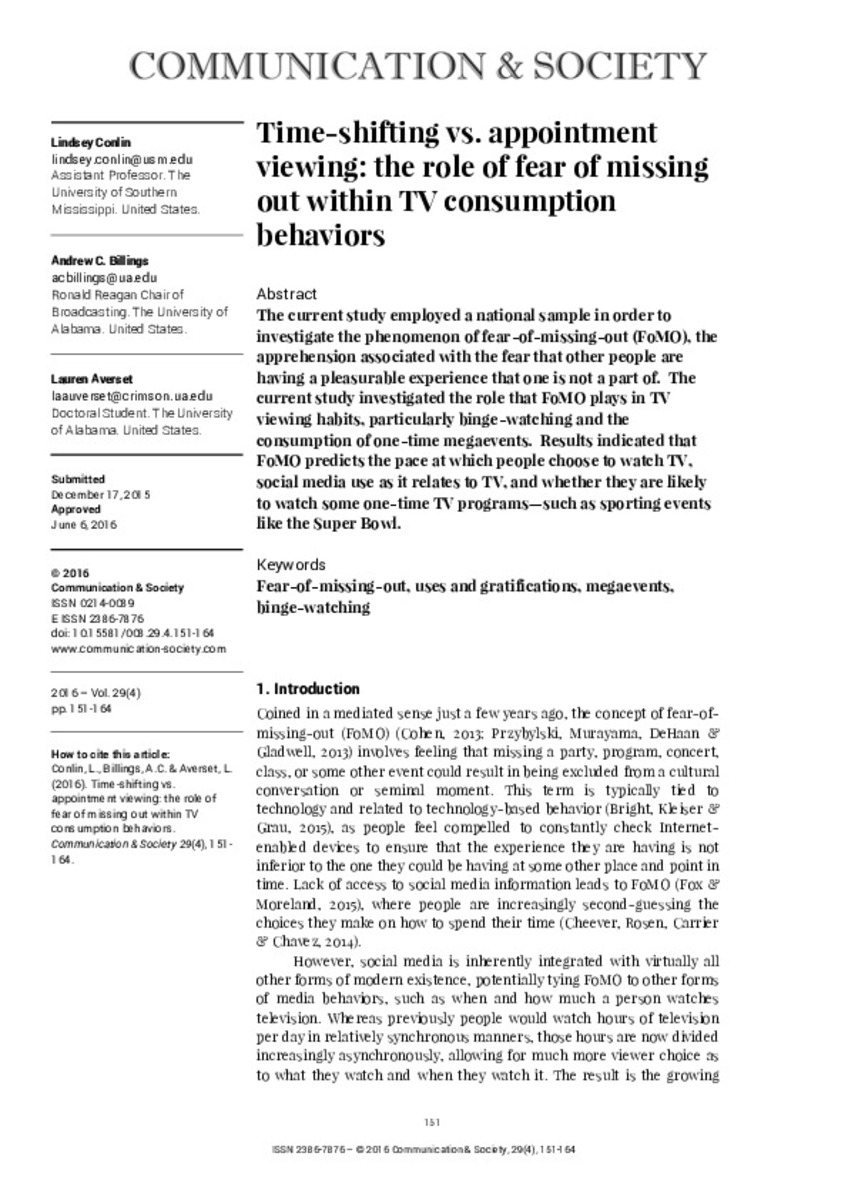Full metadata record
| DC Field | Value | Language |
|---|---|---|
| dc.creator | Conlin, L. (Lindsey) | - |
| dc.creator | Billings, A. (Andrew) | - |
| dc.creator | Auverset, L. (Lauren) | - |
| dc.date.accessioned | 2016-10-17T12:15:51Z | - |
| dc.date.available | 2016-10-17T12:15:51Z | - |
| dc.date.issued | 2016 | - |
| dc.identifier.citation | Conlin, L., Billings, A.C. & Averset, L. (2016). Time-shifting vs. appointment viewing: the role of fear of missing out within TV consumption behaviors. Communication & Society 29(4), 151- 164. | es_ES |
| dc.identifier.issn | 0214-0039 | - |
| dc.identifier.uri | https://hdl.handle.net/10171/41839 | - |
| dc.description.abstract | The current study employed a national sample in order to investigate the phenomenon of fear-of-missing-out (FoMO), the apprehension associated with the fear that other people are having a pleasurable experience that one is not a part of. The current study investigated the role that FoMO plays in TV viewing habits, particularly binge-watching and the consumption of one-time megaevents. Results indicated that FoMO predicts the pace at which people choose to watch TV, social media use as it relates to TV, and whether they are likely to watch some one-time TV programs—such as sporting events like the Super Bowl. | es_ES |
| dc.language.iso | eng | es_ES |
| dc.publisher | Servicio de Publicaciones de la Universidad de Navarra | es_ES |
| dc.rights | info:eu-repo/semantics/openAccess | es_ES |
| dc.subject | Binge-watching | es_ES |
| dc.subject | Megaevents | es_ES |
| dc.subject | Uses and gratifications | es_ES |
| dc.subject | Fear-of-missing-out | es_ES |
| dc.title | Time-shifting vs. appointment viewing: the role of fear of missing out within TV consumption behaviors | es_ES |
| dc.type | info:eu-repo/semantics/article | es_ES |
| dc.identifier.doi | 10.15581/003.29.35812 | es_ES |
Files in This Item:
Statistics and impact
Items in Dadun are protected by copyright, with all rights reserved, unless otherwise indicated.






